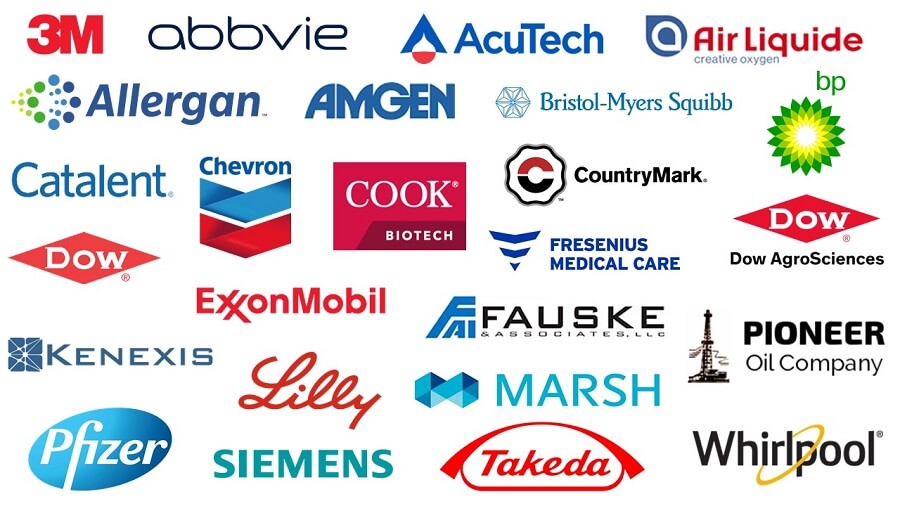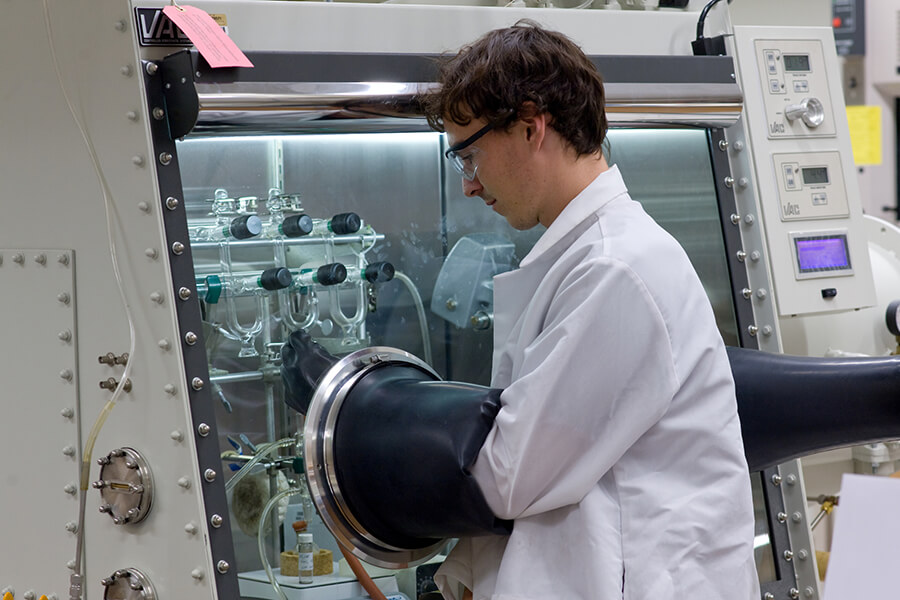Chemical Engineering
Professional Master's Program
Chemical Engineering Professional Master's Program
The Chemical Engineering Professional Master's Program (PMP) at Purdue University provides students from both chemical engineering and non-chemical engineering undergraduate backgrounds the opportunity to supplement their education with a curriculum that prepares them for success in industry. The PMP provides students with the technical skills they would acquire in a traditional MS program, while also developing skills indispensable in industry, such as leadership, management, business, financial skills, oral and written communication, teamwork, defining & managing projects.
Our master's graduate program in chemical engineering is set apart because the coursework may be tailored to the career goals and backgrounds of our students. Students who do not have a background in chemical engineering complete prerequisite courses. The prerequisite courses introduce the fundamental and introductory skills needed to successfully begin chemical engineering masters level coursework. Students with more advanced backgrounds may begin in higher-level classes.
Rankings & Recognition
#1
Recognized Public University in the U.S.
American Caldwell, 2024#5
Graduate Engineering Program in the U.S.
U.S. News & World Report, 2025#10
Most Innovative School
U.S. News & World Report, 2024#10
Public University That Employers Love
Forbes, 2025Program Highlights
12-Month Program
Students with a chemical engineering degree or coursework complete advanced technical and management courses, earning an MS in Chemical Engineering.
Specialized Coursework
Students choose from 7 concentration areas to gain specialized knowledge suited to their interests and goals.
Real-World Problem Solving and Innovation
Students work with industry leaders and our world-renowned faculty on a 6-credit hour capstone project.
Professional Development and Mentorship
Students receive one-on-one counseling with a faculty or industry-experienced mentor, as well as career development opportunities to prepare for success at Purdue and beyond.
Career Catalyzation
Most graduates enter careers in diverse fields, often on advanced leadership tracks, while some students pursue further education, such as a PhD or MBA.
Seven Concentrations
Students can choose one of the seven key areas of chemical engineering that best aligns with their interests and career goals to focus their curriculum.

MSChE – MBA Dual Degree – Become a Technical Innovator and Business Leader
Strengthen your technical foundation while gaining essential business skills through a two-year dual degree designed to prepare future engineering leaders for advanced industry roles.
LEARN MORE ABOUT THE MSChE – MBA PROGRAM
Working Professional Track
Advance your career on your schedule with our flexible part-time master's track – designed for working professionals to earn their degree in 3 – 4 years while continuing full-time work.
LEARN MORE ABOUT THE WORKING PROFESSIONAL TRACK




